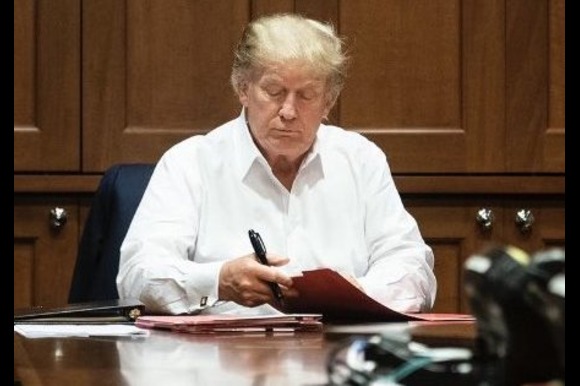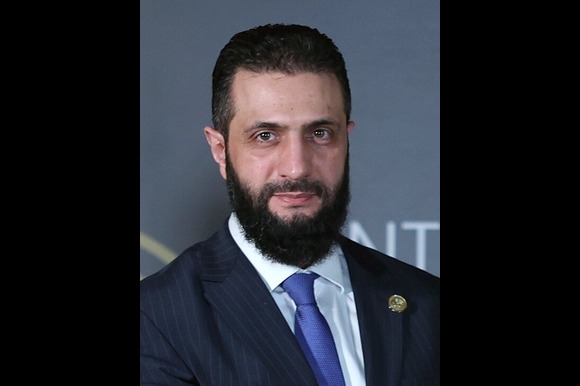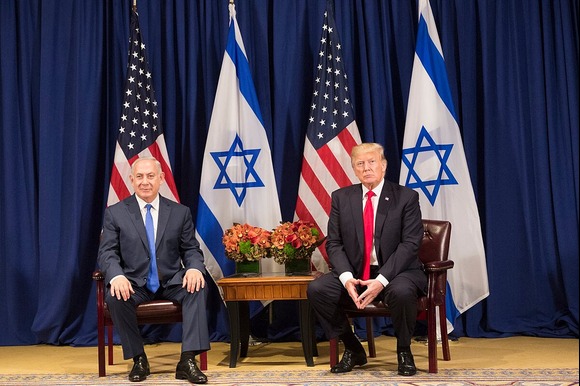
photo by Shealah Craighead
President-elect Donald Trump has expressed his continued interest in the United States acquiring Greenland and the Panama Canal, deeming both essential for American national security. When questioned about the possibility of employing military or economic force to gain control over the autonomous Danish territory or the Canal, he stated, “No, I can’t assure you on either of those two.”
Trump emphasised, “But I can say this, we need them for economic security,” during a comprehensive news conference held at his Mar-a-Lago estate in Florida. Both Denmark and Panama have firmly dismissed any proposals regarding the relinquishment of their territories.
He underscored the need for economic security by stating,
“The Panama Canal was designed for our military.” When further questioned about ruling out military force, he stated, “I will not commit to that. There may be a necessity for action.
Mr. Trump’s remarks have intensified his ongoing advocacy for the expansion of American territory, a stance that is likely to disturb three of America’s allies: Panama; Denmark, which oversees Greenland’s foreign and security matters; and Canada, which he has derisively referred to as America’s “51st State.”
However, on Tuesday, he clarified that his comments were serious, indicating that if Canada chose to maintain its sovereignty, the financial implications for its trade relations with the United States could be severe.
It is possible that Mr. Trump was engaging in posturing to gain a negotiating advantage. However, it has been since the era of William McKinley, who initiated the Spanish-American War in the late 19th century and subsequently secured U.S. control over the Philippines, Guam, and Puerto Rico, that an American president-elect has so overtly threatened the use of force to extend the nation’s territorial reach.
This situation serves as a reminder that Mr. Trump’s interpretation of “America First” is far from isolationist. He approaches American foreign policy with the mindset of a real estate developer, demonstrating a strong inclination towards territorial acquisition.
He maintained that he would not be constrained by the treaty established with Panama, which was ratified by the Senate in 1978 with a vote of 68 to 32, just surpassing the two-thirds majority required by the Constitution.
He believed that transferring control of the Canal back to Panama was a mistaken decision and was reluctant to express this during the mourning of former President Jimmy Carter, who had negotiated the agreement, but later criticized Carter’s judgment multiple times.
He expressed his belief that the transfer of control of the Canal back to Panama was a misguided decision, stating that he hesitated to voice this opinion while the nation was mourning the passing of former President Jimmy Carter, who had negotiated the agreement. He subsequently returned to criticizing Mr. Carter’s judgment on multiple occasions.
In December, Mr. Trump escalated his calls for the purchase of Greenland and articulated his dissatisfaction with the treatment of American shipping in the Panama Canal. Ian Bremmer of the Eurasia Group remarked that Mr. Trump’s reasoning echoed the justifications offered by President Vladimir V. Putin of Russia for the invasion of Ukraine.
Upon reviewing Mr. Trump’s collection of social media posts on these topics and considering his remarks at his private Florida club, Mar-a-Lago, it is apparent that he is formulating a national security rationale for the imperative of an American acquisition of Greenland and the Panama Canal Zone.
On Tuesday, it was reported that ships from China and Russia have been increasingly sighted near Greenland, indicating a growing interest from these nations in shorter polar shipping and military routes. This shift is attributed to global warming, which has led to the melting and reduction of ice fields, making these routes more navigable.
It was suggested that China, which oversees two ports close to the canal, is effectively in control of the canal itself; however, this claim is not accurate.
In the wake of Prime Minister Justin Trudeau’s resignation on Monday, Mr. Trump commented on social media that “many people in Canada LOVE being the 51st State.” Mr. Bremmer subsequently noted on X that “American imperialism is so back.” Throughout the news conference, Mr. Trump seemed to disregard the assertions made by Denmark’s leadership that Greenland is not for sale, along with similar statements from Panama.
The critical question now is whether he is merely applying pressure for negotiation or if he truly intends to follow through on his threats.



